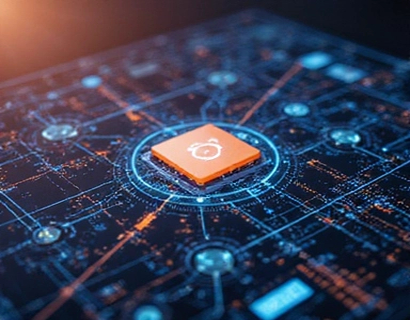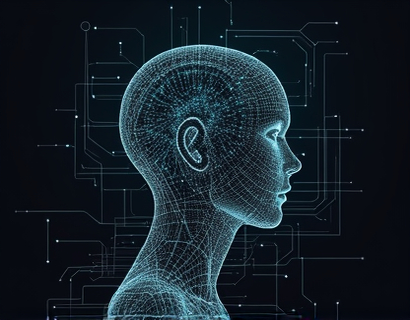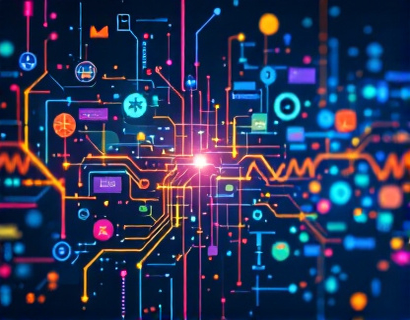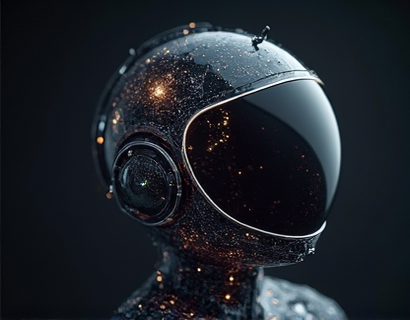Unlocking Imagination and Emotional Growth in Children with AI-Powered Personalized Companions
In recent years, the integration of artificial intelligence in childhood development has opened new avenues for enhancing creativity and emotional growth in children. AI-powered personalized companions, often referred to as digital or imaginary friends, are transforming the way young minds interact with technology. These innovative tools offer a unique blend of interactive play and emotional support, all within a safe and nurturing digital environment. This article delves into the profound impact of these AI companions on children's development, exploring how they spark imagination, foster social skills, and provide a platform for emotional exploration.
The Role of AI-Powered Companions in Childhood Development
AI-powered companions are designed to adapt to each child's unique personality, interests, and developmental stage. By leveraging advanced algorithms and machine learning, these digital entities can engage in meaningful conversations, play interactive games, and even offer comfort during challenging times. This personalized approach ensures that the companions remain relevant and engaging, encouraging children to spend more time in imaginative and creative activities.
The primary benefit of these AI companions lies in their ability to provide a constant source of interaction and support. Unlike traditional toys or even human caregivers, AI companions can be available 24/7, offering a sense of security and companionship. This constant presence can be particularly beneficial for children who may feel lonely or isolated, providing them with a reliable friend to talk to and share their thoughts and feelings.
Sparking Creativity Through Interactive Play
One of the most significant advantages of AI-powered companions is their role in sparking creativity. These digital friends often come with a wide range of interactive games and activities that challenge children to think outside the box. For instance, an AI companion might propose a storytelling session where the child can create characters, plotlines, and settings, all while the AI provides suggestions and feedback. This collaborative process not only enhances creative thinking but also boosts confidence in expressing ideas and narratives.
Moreover, AI companions can introduce children to various forms of art and creativity. They might suggest drawing, painting, or even composing music, guiding the child through the process step by step. This exposure to different creative outlets can help children discover new talents and passions, fostering a lifelong love for learning and self-expression.
Emotional Growth and Social Skills Development
Beyond creativity, AI-powered companions play a crucial role in emotional growth and social skills development. These digital friends are equipped with emotional intelligence algorithms that allow them to recognize and respond to a child's emotional state. For example, if a child expresses sadness or frustration, the AI can offer words of comfort, suggest relaxation techniques, or even initiate a conversation about the child's feelings. This empathetic interaction helps children understand and manage their emotions more effectively.
Social skills are another area where AI companions excel. Through role-playing scenarios and interactive dialogues, children can practice communication, empathy, and conflict resolution. These simulations provide a safe space to experiment with different social situations and outcomes, preparing children for real-life interactions. The AI can also offer feedback on the child's social behaviors, reinforcing positive actions and suggesting improvements where needed.
Creating a Safe Digital Space
The digital environment created by AI-powered companions is meticulously designed to be safe and nurturing. Unlike the unpredictable nature of the internet, these companions operate within a controlled framework that prioritizes the child's well-being. Privacy and security are paramount, with strict measures in place to protect children's data and ensure a harassment-free experience.
Parents and guardians can rest assured that their children are engaging in a supervised and monitored environment. The AI companions are programmed to avoid inappropriate content and to promote positive interactions. This safety net allows children to explore their imagination and emotions without the risks associated with unsupervised internet use.
Enhancing Parent-Child Interaction
AI-powered companions can also serve as a bridge between children and their parents or guardians. By sharing experiences and insights gained from interactions with the AI, children can open up about their thoughts and feelings, fostering deeper connections. Parents can use these interactions as conversation starters, gaining a better understanding of their child's inner world and emotional needs.
Furthermore, AI companions can assist parents in monitoring their child's emotional and cognitive development. Detailed reports and analytics provided by the AI can highlight areas of strength and areas that may need more attention. This data-driven approach enables parents to tailor their support and interventions more effectively, ensuring their child receives the necessary guidance and encouragement.
Case Studies and Real-World Applications
Several case studies have demonstrated the positive impact of AI-powered companions on children's development. For instance, a study conducted in a primary school setting showed that children who interacted with an AI companion exhibited significant improvements in creative thinking and emotional regulation. Teachers reported that these children were more engaged in class, showed better problem-solving skills, and had improved relationships with peers.
Another example comes from a therapeutic setting where AI companions were used to support children with anxiety and autism. The AI's consistent and non-judgmental presence helped these children feel more comfortable expressing themselves, leading to better mental health outcomes and enhanced social interactions.
Challenges and Considerations
While the benefits of AI-powered companions are clear, there are also challenges and considerations that need to be addressed. One major concern is the potential for over-reliance on digital companions, which could limit face-to-face interactions and real-world experiences. To mitigate this, it is essential to use these AI companions as a complementary tool rather than a replacement for human interaction.
Another consideration is the need for continuous updates and improvements to ensure the AI remains relevant and effective. As children grow and their needs change, the AI must adapt accordingly. Regular feedback from users and ongoing research are crucial to refining these companions and addressing any emerging issues.
Conclusion
AI-powered personalized companions represent a groundbreaking approach to childhood development, offering a unique blend of creativity, emotional support, and social skills training. By providing a safe and nurturing digital space, these companions help children explore their imagination and emotions in ways that were previously unimaginable. As technology continues to evolve, the potential for AI to positively impact children's lives is vast, making it an exciting and promising field for future research and innovation.











































